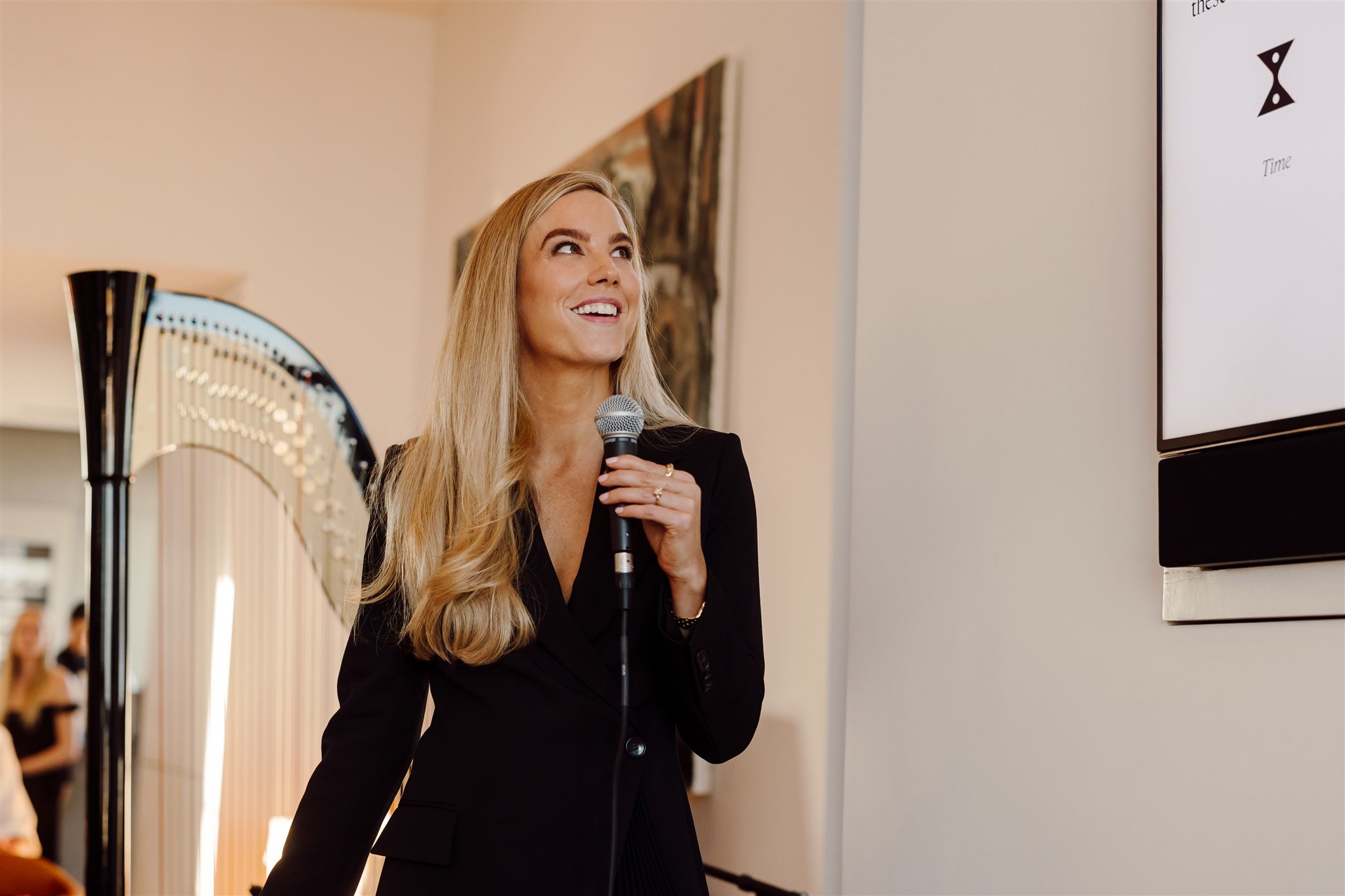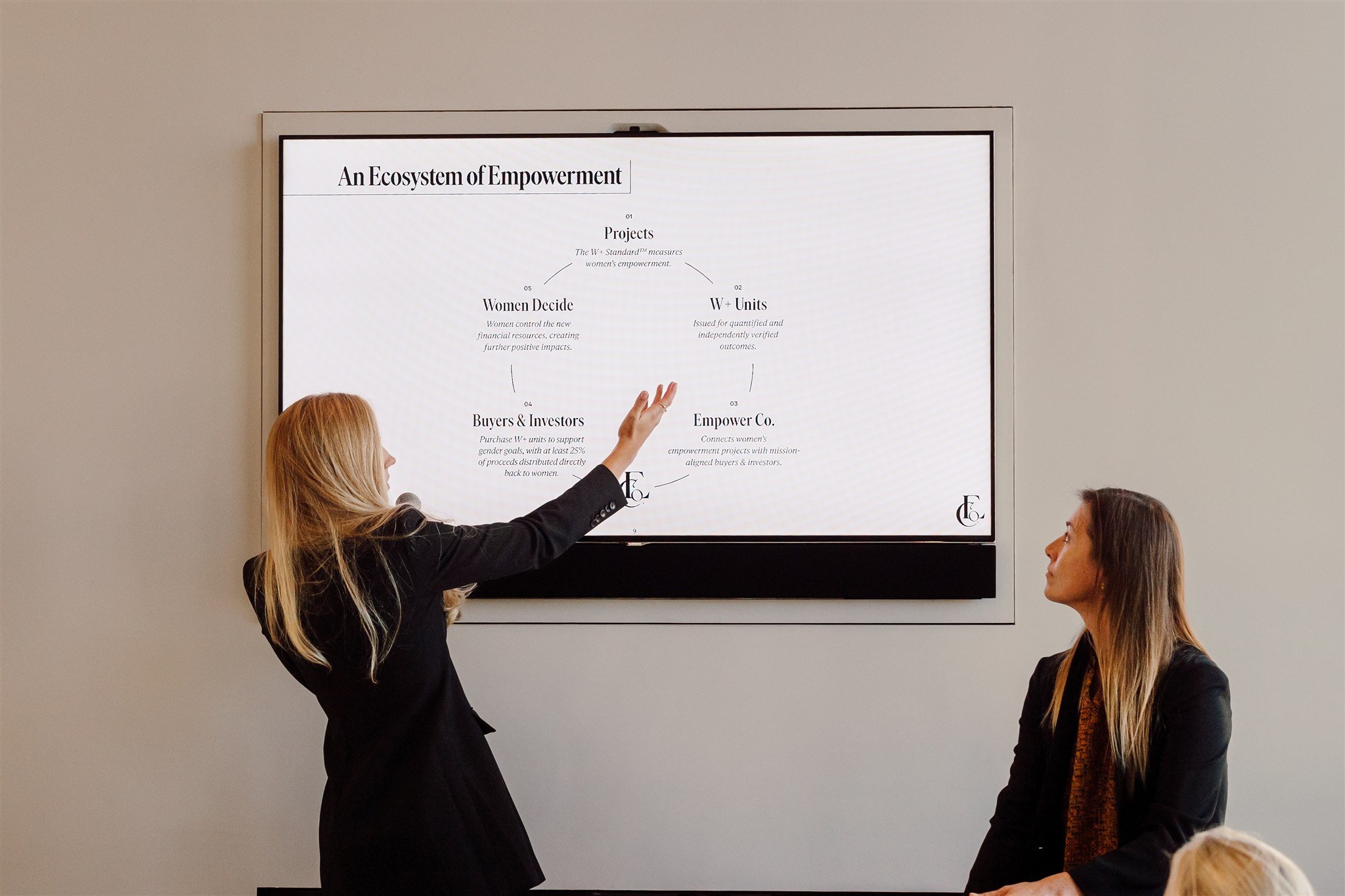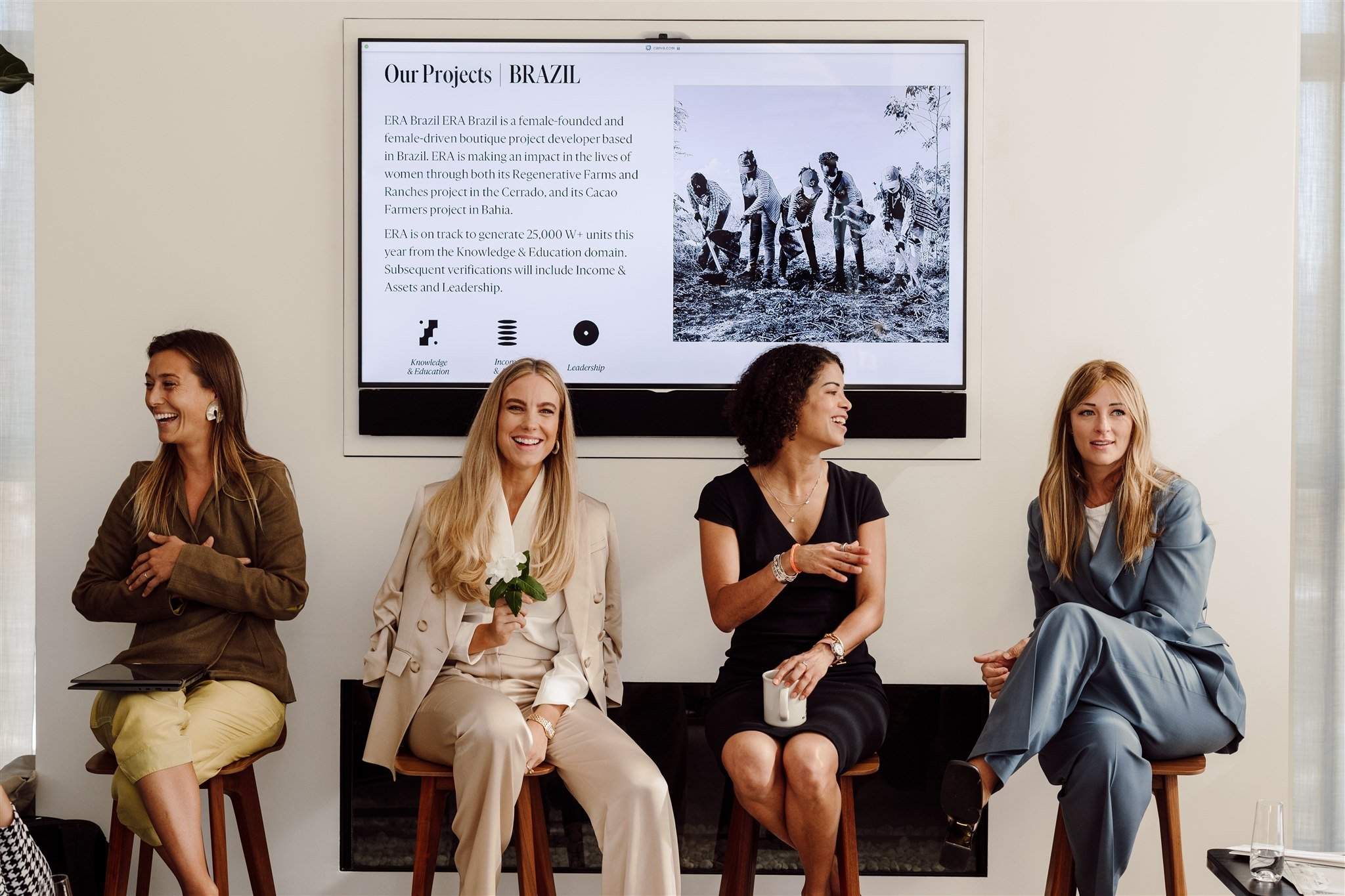Our Climate Week 2023 Takeaways
That’s a wrap on Climate Week 2023! This year’s gathering of political, business, and civil society leaders in New York City was inspiring and illuminating, but also a sobering reminder of the magnitude and urgency of the work to be done.
Empower Co. is deeply grateful to our partners and supporters, who joined us from all over the world — from Rio de Janeiro, Brazil to Kasigau, Kenya — to hear about the exciting progress we’ve made this year!
Empower Co. hosted several Climate Week events, including two roundtables with corporate executives and institutional investors hosted by Morgan Stanley, a reception to introduce our long-time supporters to our incredible project developer Hannah Simmons of ERA Brazil, and a panel on economic pathways to end climate change, jointly hosted with Summit Impact. We had many productive discussions on why a transparent voluntary market will be the most effective way to scale women’s empowerment and leverage this power to end the climate crisis.




























All images by Karen Obrist
We’re excited to share with you Empower Co.’s five biggest takeaways from Climate Week 2023:
1. We must accelerate action on the Sustainable Development Goals
As UN Secretary-General António Guterres made clear, “today, only 15 percent of the [SDG] targets are on track and many are going in reverse.” World leaders adopted a declaration to accelerate action to achieve the 17 goals, but given that numerous studies have shown that women’s empowerment catalyzes better outcomes across all SDGs, we at Empower Co. remain committed to scaling the power of women as the key to accelerating progress on the global goals.
2. Data is essential
A common refrain throughout Climate Week was how ESG data is essential to the UN’s climate agenda. The era of soft claims and pledges is over. The Secretary-General’s Climate Ambition Summit focused on the need for credible, science- and data-backed plans to deliver on this agenda. Climate ambition and accountability go hand-in-hand.
For Empower Co., this reaffirms our conviction that as the private sector seeks more data-driven ways to deliver on the “S” in ESG, our offering of quantified, third-party verified impact on the lives of women fulfills the need for transparency and accountability because it is anchored in data.
3. Innovative approaches to impact
As the focus shifts from abstract intent to real-world impact, we noticed a significant openness to new approaches that go beyond neutralizing the bad. The private sector in particular is eager to engage with innovative solutions that take the risk out of social impact and offer a different route than traditional philanthropy.
While there is certainly a place for philanthropy, Empower Co. notes that this approach continues to underdeliver for women and girls, which is why a market-based mechanism is essential to accelerate the shift from intent to wholly positive impact.
4. Inclusivity and collaboration with IPLCs and Women
This year, we saw a renewed commitment to inclusivity and collaboration in climate solutions, which is not just a good idea — it’s imperative. Climate change disproportionately affects those communities whose voices are often heeded the least, from women, to Small Island Developing States (SIDS) to Indigenous Peoples and Local Communities (IPLCs). But as we at Empower Co. know, vulnerability yields expertise.
SIDS, IPLCs, and women all possess a wealth of climate expertise. IPLCs, from the Maya people of Mesoamerica to the Lenca people in Honduras, originated food systems that have fed communities for millennia — long before we called them “regenerative.” Organizations and initiatives like ASHI, Peoples Forest Partnership, and Ikiama Nukuri center the expertise of IPLCs, and the new Equitable Earth Coalition carbon standard will make IPLC communities the primary beneficiaries and leaders of climate projects.
Women globally are already doing essential climate adaptation and mitigation work, from the women scientists spearheading climate research to the women smallholder farmers responsible for 70% of food production in Africa. Amplifying the power of women so that they can lead effective climate solutions is Empower Co.’s reason for being.
5. Intersection between climate, nature, and women
In contrast to previous years, Climate Week 2023 finally acknowledged the close interconnection between climate and nature and the need for solutions that bring shared impact to both. The Taskforce on Nature-related Financial Disclosures (TNFD) published recommendations for companies to disclose their nature-related risks and impacts, which makes a compelling case for the importance of nature’s health and resilience for not only social good but also for economies, business, and finance.
The women in the projects we represent know firsthand that biodiversity is essential to climate adaptation. As Hannah Simmons, our project developer in Brazil explains, as women have been excluded from traditional industries like ranching and monocrop farming, they are much more open to exploring avenues for income that center biodiversity and restoration.
Empower Co. proudly and exclusively represents ERA Brazil’s agroforestry project, which is not only on track to generate 30,000 W+ Units from positively impacting the lives of women, but does so by creating biodiverse food systems that protect and restore native flora that function in tandem with the traditional agricultural practices of their families. Empower Co. will continue seeking ways to address gender, climate, and nature holistically to amplify the positive impacts on all three.
Climate Week 2023 was a week of important conversations and valuable learning for us at Empower Co. We hope that these insights can be inspiring to you as we all work to end the climate crisis together.

